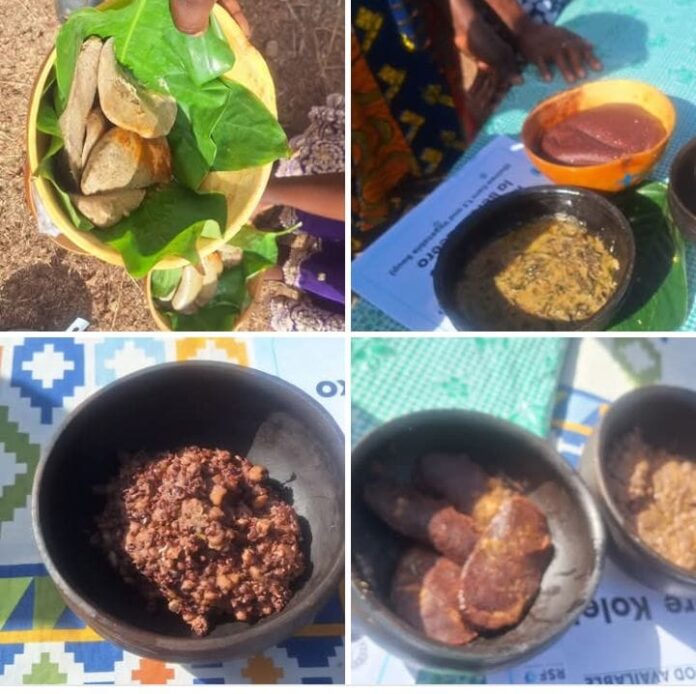The Nkunzesi community in the Nabdam District was a sight to behold on Saturday January 11, 2025, when the Widows and Orphans Movement organized the Indigenous Seed and Food Bazaar.
Wild aroma of variety of indigenous Farefare dishes prepared to perfection and well garnished blew participants away as they dance to live traditional performances and music blaring from giant speakers.
The dishes were prepared by 5 different women farmer groups drawn from 5 communities – Sakote, Nkunzesi, Dasabligo, Tongo-Beo and Yagzoore – in the Talensi and Nabdam Districts.
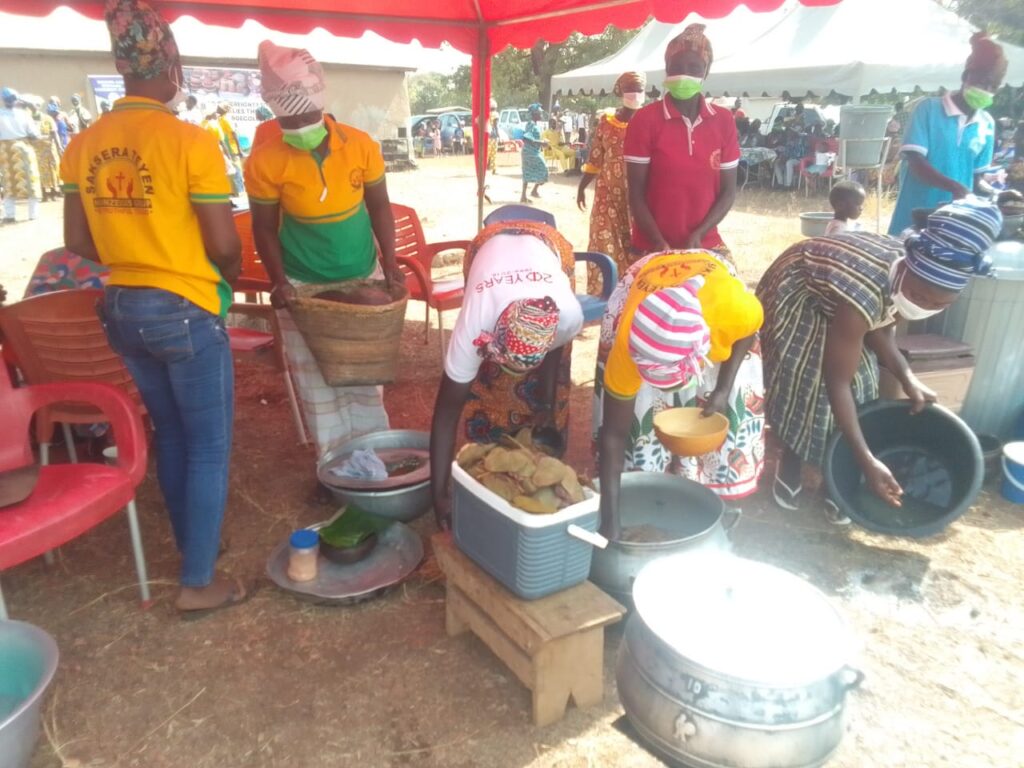
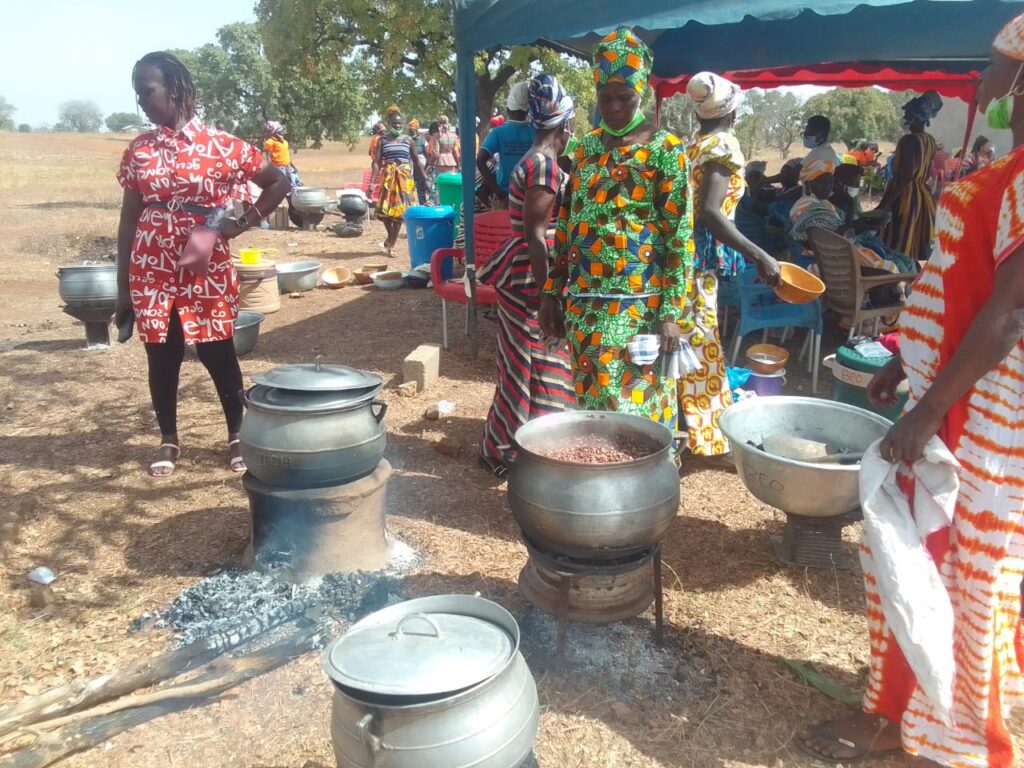
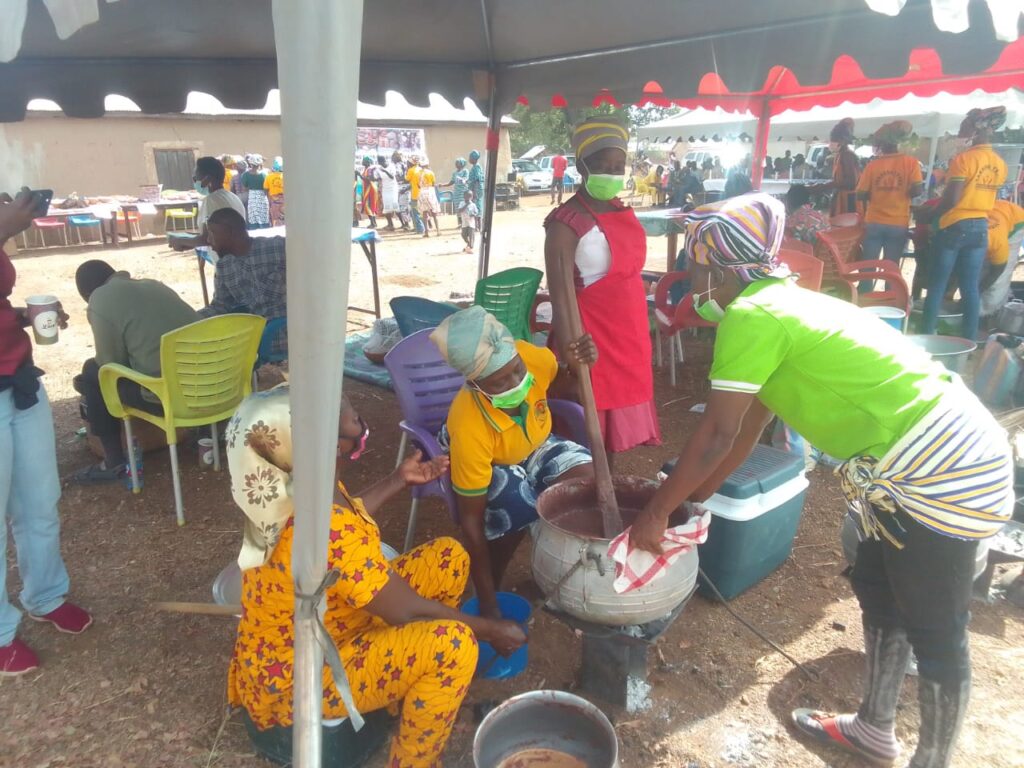
One after the other, the groups expatiated the methods involved in preparing each of the scrumptious foods while the stuffs from which the meals are made were put on display to the delight of participants.
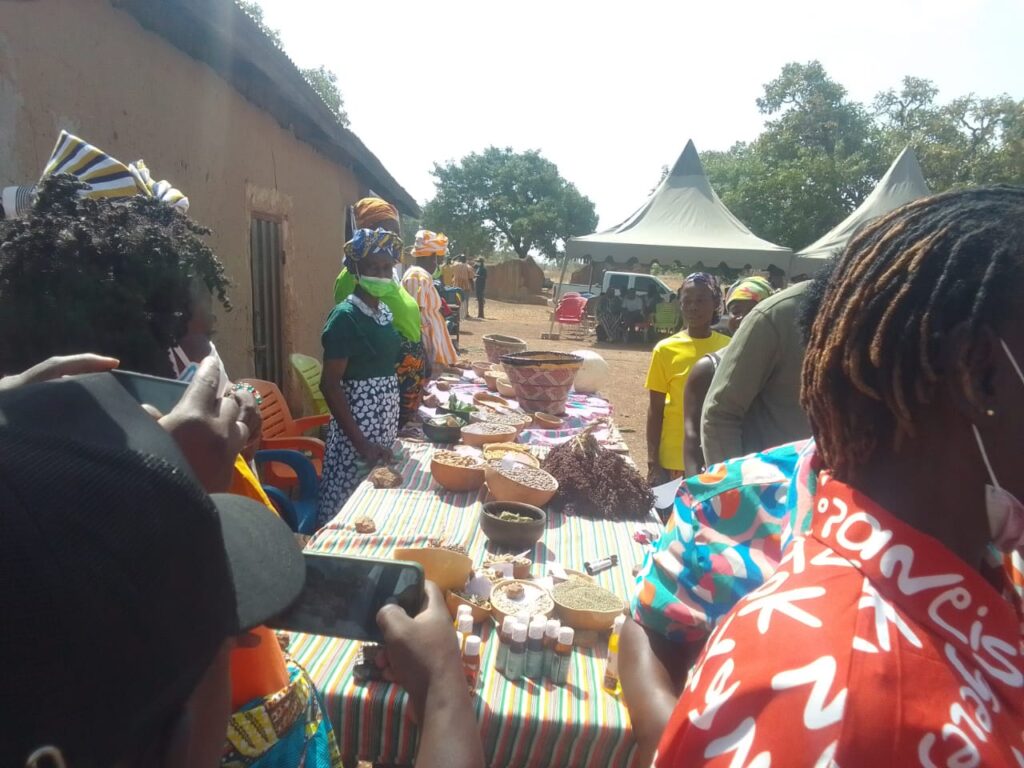
With funding support from the 11th Hour Project Food Sovereignty Fund of RSF Social Finance, the bazaar forms part of an initiative to promote women ownership of lands for agricultural purposes and to ensure food sufficiency in female-headed homes.
Dubbed Attaining Food Sovereignty for Female-headed Families through the Promotion of Agroecological practices and implemented by the Widows and Orphans Movement, the initiative aims to achieve these through safe environmental farm practices.
Director of Widows and Orphans Movement Fati Abigail Abdulai explained that the bazaar is targeted at helping the women learn from each other skills in making nutritious meals from their farm produce and preserving indigenous foods which are rich in nutrients but have almost gone into oblivion.
“We have somehow lost some of our indigenous foods. And so even as they are growing them, the skill to use them for food preparations is missing out. And so, today’s food bazaar is one of such opportunities to promote learning and sharing among the women,” he stated.
“So we had 5 communities from the Talensi and Nabdam Districts cooking their indigenous foods and then sharing these foods with other people from other communities and also sharing the recipes with other women so that as they go back to their homes, they can continue preparing these foods to ensure that the families’ nutrition is met”.
Some members of the groups shared the nutritional benefits of the meals they prepared.
Charity Sumkpaliga, a member of the Yagzoore group urged parents to consume and feed their children with such nutritious foods to improve their health and growth.
“These foods make us strong and healthy. They are healthier than the junk food most of us are now resorting to. So I’m urging parents to eat local foods and stop feeding their children with noodles and other spicy foods”.

